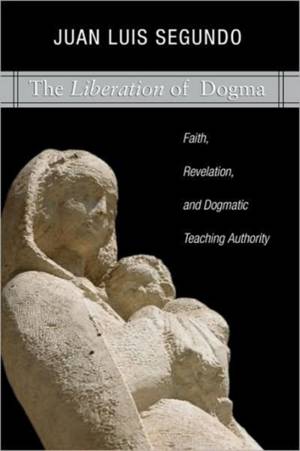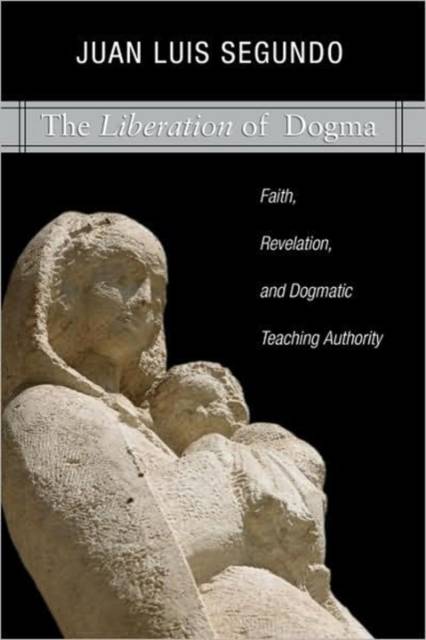
En raison d'une grêve chez bpost, votre commande pourrait être retardée. Vous avez besoin d’un livre rapidement ? Nos magasins vous accueillent à bras ouverts !
- Retrait gratuit dans votre magasin Club
- 7.000.000 titres dans notre catalogue
- Payer en toute sécurité
- Toujours un magasin près de chez vous
En raison de la grêve chez bpost, votre commande pourrait être retardée. Vous avez besoin d’un livre rapidement ? Nos magasins vous accueillent à bras ouverts !
- Retrait gratuit dans votre magasin Club
- 7.000.0000 titres dans notre catalogue
- Payer en toute sécurité
- Toujours un magasin près de chez vous
Liberation of Dogma
Faith, Revelation, and Dogmatice Teaching Authority
Juan L Segundo
Livre broché | Anglais
51,45 €
+ 102 points
Description
In a playful foreword that isn't, Juan Luis Segundo calls his present work posthumous - both because the sensitivity of the topic puts any future works in jeopardy, and because it provides the logical key to all his previous theological work. Thirty years a theologian, Segundo has tried to interpret the meaning of the gospel for believers today. One of the pioneers of Latin American liberation theology, he has tried especially to discern the relevance of faith to the emancipation of human beings from conditions of oppression. In 'The Liberation of Dogma' he turns to foundational questions of Christian faith seldom addressed by liberation theology: the meaning of revelation, and its articulation in dogma. Beginning with a brilliant historical survey of the development of scripture, Segundo lays the basis for his understanding of revelation as a process of divine pedagogy, an interaction between God and the human community in which the latter learn how to learn. The subsequent history of dogma reflects a continuation of the biblical story as the church learns to test and apply paradigms of faith to the challenges of an unfolding cultural and historical situation. Segundo examines the collision that occurred in the Middle Ages, when Greek dogmatic formulations -carefully worded to address problems posed by Hellenistic culture - were imposed on the new barbarian tribes as ready-made truths. This resulted in the loss of a dynamic understanding of revelation and faith, from which the church has only emerged since Vatican II. In his conclusion, Segundo develops a theology of revelation attuned to the signs of the times, a perspective influenced by the experience of Latin America's base communities. According to Segundo, Knowledge of God as 'revealing' something occurs to us when we are discovered to have a historical sensitivity that converges with God's own intentions. It is from a perspective and practice attuned to the Reign of God that we are free to discern God's revelation in history today.
Spécifications
Parties prenantes
- Auteur(s) :
- Editeur:
Contenu
- Nombre de pages :
- 316
- Langue:
- Anglais
Caractéristiques
- EAN:
- 9781592447879
- Date de parution :
- 01-08-04
- Format:
- Livre broché
- Format numérique:
- Trade paperback (VS)
- Dimensions :
- 121 mm x 229 mm
- Poids :
- 453 g

Les avis
Nous publions uniquement les avis qui respectent les conditions requises. Consultez nos conditions pour les avis.






